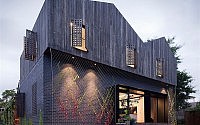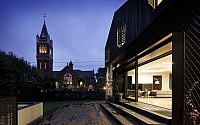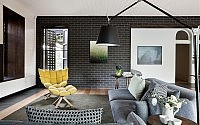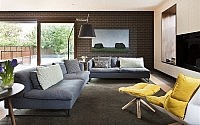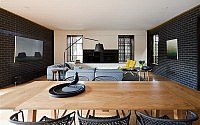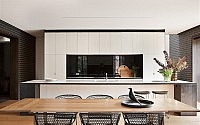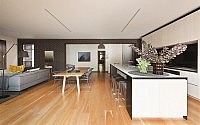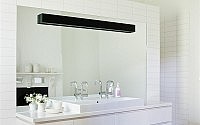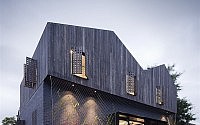Twin Peaks House by Jackson Clements Burrows Architects
Design of alterations and addition to an existing Edwardian house of some historical significance which is located in an area with a Heritage overlay.









Description by Jackson Clements Burrows Architects
This project involved the design of alterations and addition to an existing Edwardian house of some historical significance which is located in an area with a Heritage overlay.
The brief for the house revolved around accommodating a family, including 3 children. The proposal included 3 new bedrooms and activity space to the new first floor at the rear and a large family /kitchen area directly below. The existing house included a new master bedroom / ensuite, study and the maintenance of the original grand dining room and lounge areas.
The idea of the house was organised around finding a compatible but distinctive relationship between the existing interior and the new addition and the existing external form and the new addition. This was achieved through the use of a common materiality contrasting black brick for the new against red brick in the old. The pitched external roof forms, a requirement of stringent Heritage guidelines, were expressed as “twin peaked” gable ends that aligned directly with the with the double valley hip roof of the existing house. The external timber clad rainscreen is defined as a one third proportion that aligns directly with the existing slate tiled roof of the existing house. While compatible in terms of proportion and alignment the reductive abstraction of the new exterior and interior, suggests a new relationship to both the immediate garden and the greater surrounding context.
Internally the new addition uses white painted timber lining boards and exposed internal black work to define a new family living space. The use of materials normally associated with the exterior of a Heritage house suggests an inversion of our normal reading of an interior that is both surprising and yet reassuring in terms of its familiarity.
Visit Jackson Clements Burrows Architects
- by Matt Watts